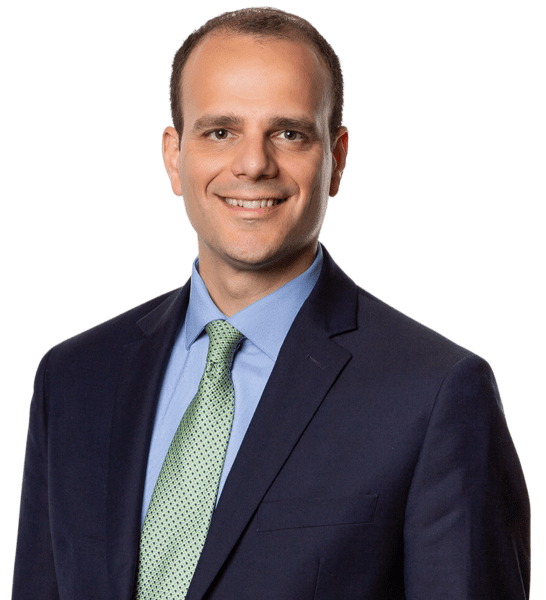The One Big Beautiful Bill Act (OBBBA), as passed by the House of Representatives on May 22, 2025, contains a provision that would modify the excise tax paid by certain private colleges and universities on net investment income, commonly referred to as the “endowment tax.” Public colleges and universities are not subject to the endowment tax.
The current endowment tax was enacted by the 2017 Tax Cuts and Jobs Actand imposes a 1.4% excise tax on the net investment income of an “applicable educational institution” from its endowment. Generally, an applicable educational institution is a private educational institution (hereafter, a private college or university) that has at least 500 tuition-paying full-time equivalent students, 50% or more of whom are located in the United States, with an endowment of the private college or university and related entities of at least $500,000 per student at the end of the preceding tax year.
The OBBBA provision would change the endowment tax from a flat 1.4% rate to a rate computed under a tiered system based on a “student adjusted endowment” calculation. Student adjusted endowment means the endowment of a private college or university and related entities determined as of the end of the preceding taxable year divided by the number of “eligible students.” Eligible students are students who meet the requirements of section 484(a)(5) of the Higher Education Act of 1965. 20 U.S.C. §1091(a)(5). This section establishes eligibility requirements for student financial aid, including the need to provide evidence from the Immigration and Naturalization Service demonstrating that a student is in the United States for a purpose other than a temporary one with the intention of becoming a citizen or permanent resident.
Under the OBBBA, a private college or university with a student adjusted endowment of $500,000 to $749,999 will be subject to the current 1.4% excise tax rate on its net investment income. As the amount of the student adjusted endowment increases, the excise tax rate would also increase until a maximum of 21% for a student adjusted endowment of $2 million or more.
| Student Adjusted Endowment | Excise Tax Rate |
|---|---|
| $500,000 – $749,999 | 1.4% (current rate) |
| $750,000 – $1,249,999 | 7% |
| $1,250,000 – $1,999,999 | 14% |
| $2,000,000+ | 21% |
The OBBBA provision includes an exemption if a private college or university is a “qualified religious institution.” A qualified religious institution is an institution:
- Established after July 4, 1776,
- Established by or in association with and has continuously maintained an affiliation with a tax-exempt organization described in Internal Revenue Code section 170(b)(1)(A), which includes, among others, churches, educational organizations, and publicly supported organizations, and
- Maintains a published institutional mission that is approved by the governing body of such institution and that includes, refers to, or is predicated upon religious tenets, beliefs, or teachings.
In addition, the OBBBA provision would require that in calculating its net investment income, a private college or university would include interest income from student loans made by the institution and certain federally subsidized royalty income received by such institution. The provision would also require a private college or university subject to the endowment tax to report on its annual information return (Form 990) the number of its eligible students (as defined above) and the number of its tuition-paying full-time equivalent students.
If enacted, the OBBBA endowment tax provision as passed by the House of Representatives would take effect for tax years after December 31, 2025. The provision would be subject to the authority of the Treasury Secretary to issue regulations and other guidance to prevent avoidance of the endowment tax, including through the restructuring of endowment funds or other arrangements designed to reduce or eliminate the value of net investment income or assets subject to the endowment tax.
However, it is highly likely the endowment tax provisions passed by the House will be modified in the Senate, which is currently debating the bill. Senators may adjust the steepness of the proposed tiered tax rates, particularly the top 21% rate, which has drawn criticism. Discussions also include adjusting the thresholds for student adjusted endowment brackets and revising the definition of “eligible students” to broaden or narrow the tax base. Senators are weighing the possibility of expanding exemptions for qualified religious institutions, as well as introducing new exemptions for other mission-driven colleges such as minority-serving institutions or those that provide substantial financial aid. There also is growing interest in exempting, or applying modified tax treatment to, private colleges with smaller student populations.
The Senate hopes to pass its version of the bill by July 4, and the president and Republican leadership are aiming for final congressional approval before the fall.
McGuireWoods Consulting’s federal affairs team is actively working with clients to amend the current reconciliation package language to mitigate the negative impact of potential adjustments to the endowment tax. We are working with clients in higher education to identify similarly affected schools to broaden our efforts and amplify the voice of our clients through coalition efforts. Please contact McGuireWoods and McGuireWoods Consulting to see how the changes may impact your institution or how you can help adjust the final provisions of the endowment tax in the Senate.
Authors




